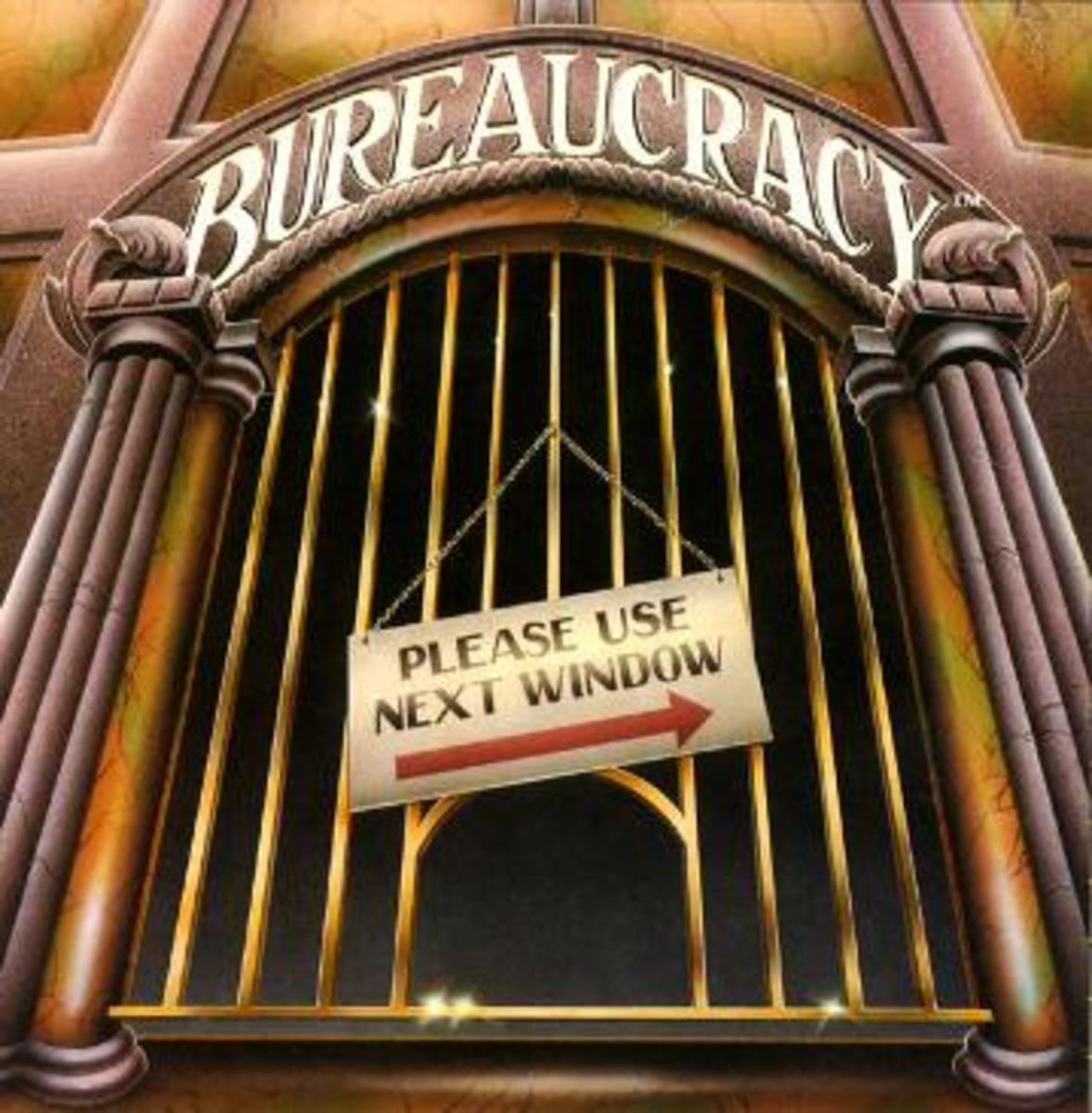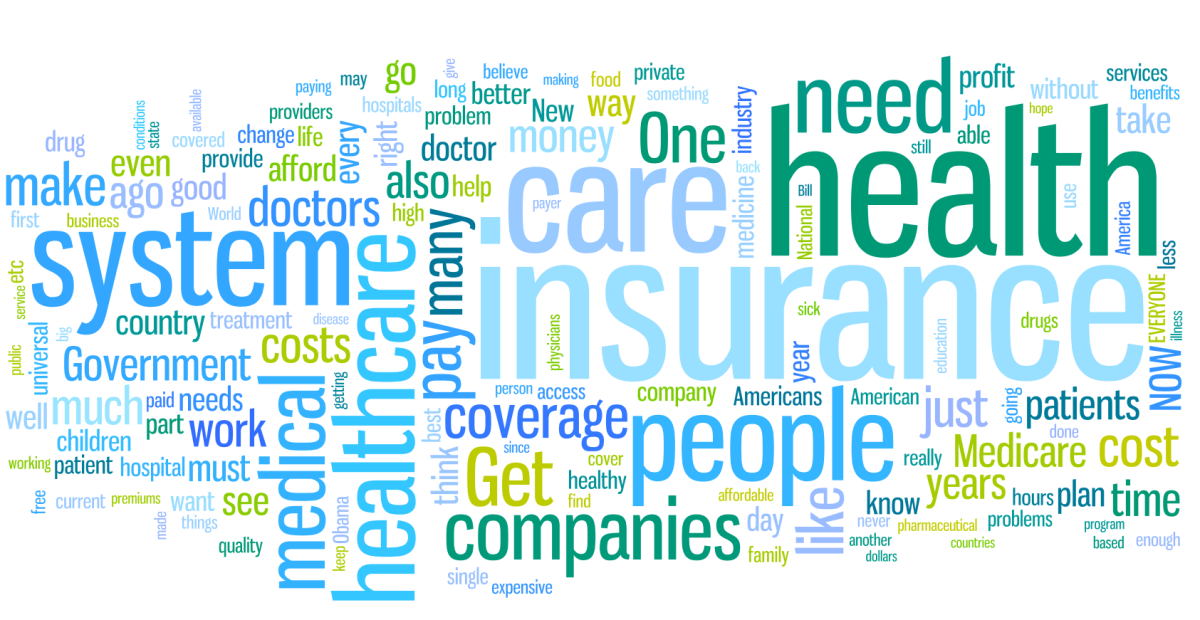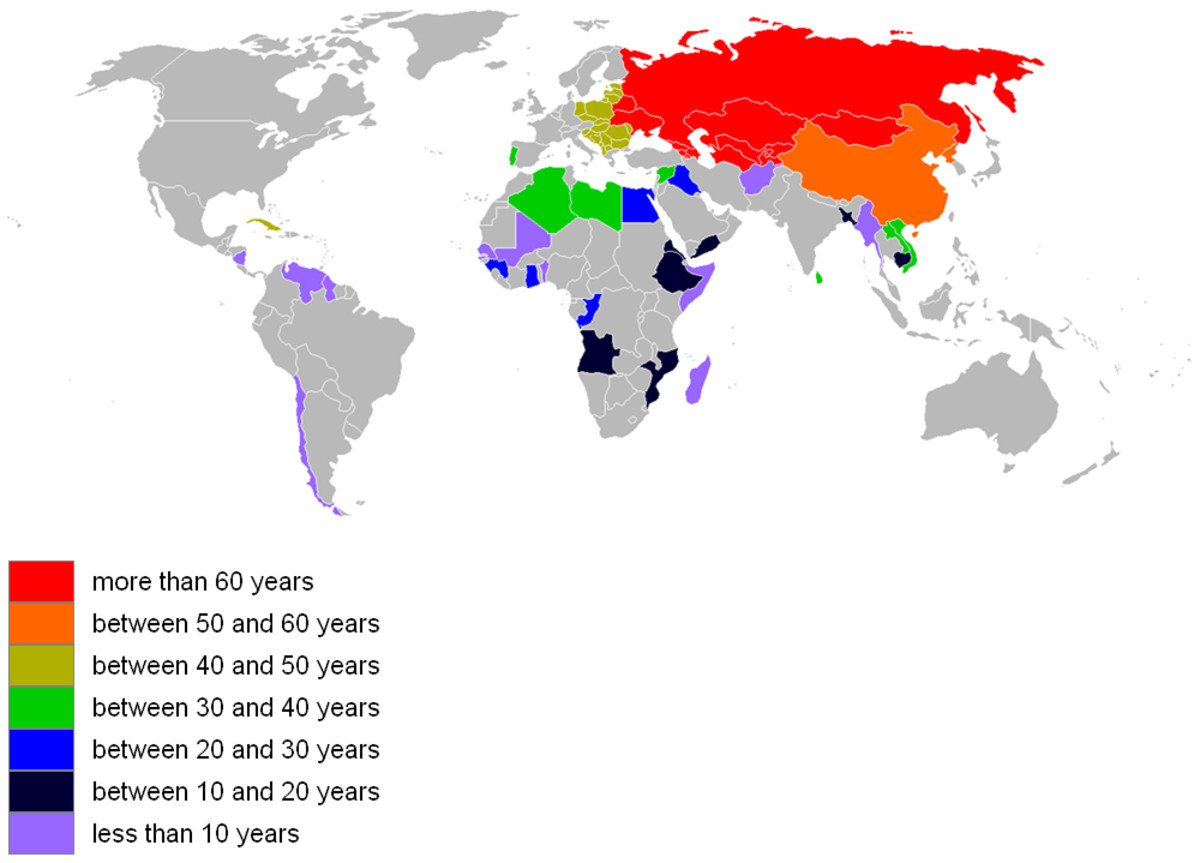Nationalized Healthcare
Author's Note: I Changed My Mind
It is important to be truthful, and although this is one of my favorite hubs, I must declaratively state that I no longer believe in one of the main arguments I stated in this hub. One of my leading arguments for the endorsement of a nationalized health care system is compassion. However, I have come to believe strongly that compassion is a tool used by those who want to take away individual freedom and the rights granted to each American as established during the early days of this nation. I believe freedom is more important, because social reforms ultimately become tools of oppression. Individual freedom is what made this country great, and it needs to be defended to the death, or we will lose it. It may be too late already.
I am not sure about the McCain health insurance plan, it would seem the best compromise we can get in a system that takes away your money and your right to spend it. It is the love child of nationalized health care and the preservation of individual rights, something both the Left and the Right can possibly live with. I have a feeling that as I understand more, I may not agree with a McCain style health insurance policy, but this is where I stand now. Feel free to comment on this foreword as well as the hub or separately in the comment section below.

Much Needed Health Care Reform
Although doctors, patients and the uninsured do not collectively agree or disagree on nationalized health care, one thing is clear: our current system comes woefully short of covering the needs of every US citizen. It is incompassionate and lacks any kind of focus when it comes to providing fair health care benefits to the general population. A secondary issue which cannot be separated from the idea of nationalized health care is whether or not it is fair and right to cover the dregs and unfortunate of society.
The problem with our current system is that even though the US spends more than any other country on health care, (13.9% of GDP in 2001 compared to 9.4% in Canada and 7.6% in the UK), 20% of the population or 43 million people are uninsured. That is because the US government pays subsidies to employers to provide health care, funds programs that take care of the elderly, disabled and minors of families that cannot afford insurance, but does not cover people that do not fall into disabled, minor or elderly categories, and who do not receive medical benefits through their employers nor can afford to pay for their own. In most other developed countries, some form of socialized medicine successfully takes care of the health needs of all their citizens and does not negatively impact the economy. In fact, it's cheaper and more efficient.
Two chief arguments exist against a nationalized health care system. Opponents fear greater government control over the freedoms of participants since if one wants health care, being under a government run health care system will be compulsory. The second objection is that everyone will be paying into the system and those that do not work, those that cannot resolve their own health issues such as drug or alcohol addiction, will get a free ride. This is true. But this second objection is not a good enough reason to reject national health care, too many people who should receive health care and currently do not, would benefit. Not only that, we are already paying higher premiums as an indirect result of uninsured health care recipients, since most patients that use emergency services can never be forced to pay because they have no money in the first place.
The issue of too much government control can easily be sidestepped by implementing McCain's plan for health care reform. Mainly, to take the current money spent on national health care in the form of employer subsidies and distribute that to individuals across the board. A new system of regulation would have to be put in place of course, the potential for abuse will exist simply because it will be a completely new infrastructure designed to give indirect payouts to users. But this system would be the best of both worlds and wholly appropriate to the American way of life: minimal government control while maintaining a free market and healthy competition.
It is important to give Americans the freedom to choose the best insurance and who their health care provider will be, while ensuring that everyone has a chance to seek medical care when they need it. In fact, except for the way health care insurance is funded, we are already under a form of national health care since tax payers are already paying into it. The problem is how the funding for that health care is distributed. Even under the McCain health plan, not everyone's needs would be met, since without guaranteed coverage, even the best funding distribution plan couldn't possibly cover the needs of every participant.
If we were to evaluate the "freedom" argument a little more, we would have to admit that in the purest sense, any form of government health care is un-American. So for those that argue against nationalized health care, they should be arguing against any kind of government funded health care, period - meaning the eradication of the current health care system. But in a developed and industrialized nation such as ours, it would be morally reprehensible to let people suffer and die just because we would rather pay for luxuries like mochas and SUVs. Of course, that's exactly the state of affairs today, with the exception that at least 80% of Americans are covered in one way or another. However, if we don't buy that next mocha or couch, what would we do with that money to benefit the disadvantaged? There are no sure ways to help the unfortunate for long term medical needs without there being some kind of large scale organization to control and distribute that kind of help. National health care is the answer that will allow everyone to get treatment and less people or even none will slip through the cracks.
National health care, socialized medicine or single payer health care, whatever you want to call it, is more compassionate. More importantly, it will elevate the quality of life for everyone. Recipients of socialized health care, living under socialist governments, complain of heavy taxation and too much regulation. But the amounts taken out of our paychecks, not just taxes but everything else as well, are very similar to taxes taken out of paychecks in socialist countries. The problem with America is that it can not decide which way to go. She has one foot in the land of socialist reform, and the other resistant foot firmly entrenched in the traditional capitalist America.
It would seem that progress dictates greater regulation for the benefit of any country as a whole. If we want to keep the old ways, that's fine, but then we have to decide to abandon all of our socialist ways. Seatbelt and helmet laws are the end result of the current American health care system, where those that do not ride motorcycles or do wear seatbelts end up paying for the health care of those that decided to exercise their right to be stupid and not wear a helmet or seatbelt. Of course this is only an excuse for the left to argue for more restrictive laws that limit personal freedom. And that is the crux of the matter. Are we going to continue moving forward, or are we going to waffle in indecision about losing our traditional free market ways? Although the allure of total freedom is a powerful siren, in a country this advanced and powerful, it is negligent not to care about the welfare of our neighbors, whoever and whatever they may be.
Consider the military, a socialistic organization. Every member gives an oath of obedience to their superiors and ultimately the commander-in-chief and swear allegiance to the Constitution. This makes the military the most efficient organization especially when compared to civilian models such as small businesses and corporations, because members are willing to give up some freedoms not only to defend America, but also to receive benefits unheard of in the civilian world. All their housing, medical and education needs are taken care of. Financially, the military model is not appropriate to the argument for socialized medicine because its very purpose demands a humongous budget. The point is that the very organization that defends America, a capitalist economy that boasts of its democratic way of life, is for the purpose of efficiency, a socialist type organization.
A big problem with nationalized health care is morality. The biggest issue that comes to mind is abortion. If you believe that abortion is murder, and abortion can be carried out legally under government run health care, each and every tax payer becomes complicit in paying for abortions all across the country. Abortion is murder, but the problem is not nationalized health care, but rather the law that allows it. That’s where the real fight is. It is not nationalized health care that causes abortions, but whether or not we permit it. This is a very tricky issue, because we will have to ask ourselves, do we permit only those abortions that are deemed necessary for the survival of the mother, or do we allow government funded abortions to occur for the sake of convenience? If we do it right, we should not fund medical care that does not directly endanger the health of the patient. This is true for any care received from medical facilities. Do we teach abstinence or condoms? Neither. We can teach the dangers of sex with multiple partners including the dangers of sex with same sex partners, and leave it up to the patients to decide whether they want to use condoms which are not a hundred percent effective, or if they want to practice abstinence. We do not need to teach about either method. Focus on treatment instead of morality. Doctors prioritize treatment in the ER according to need, not personal bias, (think gangbanger versus car accident victim). The medical community can apply the same clinical detachment to morality issues. This will be harder than it sounds, most medical care workers will balk at not teaching compromising forms of protection because of their personal beliefs, but with fierce regulation it is possible to make it fair for everyone, religious or not.
Paying into the current health care system is already compulsory, via taxes. Therefore it would be no change if a single payer system were established to replace today's inadequate and unfair distribution of tax subsidies. Ultimately though, some version of McCain's plan for health care would be an excellent compromise, allowing 43 million people to obtain health insurance that currently can not afford it, and probably the best solution for a country that prides itself on its democratic processes, capitalist economy and personal freedom. For a nation that straddles the fence between the benefits of socialism or freedom from the burden of an overbearing government, the McCain plan is best. For a system that covers the needs of every citizen and permanent resident, is the most complete and most compassionate, and is supported by more than half of doctors nationwide, national health care is the answer. Either way, our health care system today is unfair and inept. A form of universally beneficial health care is the answer.








